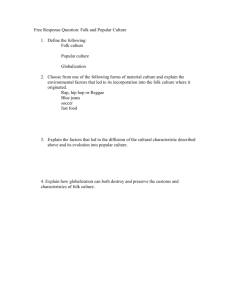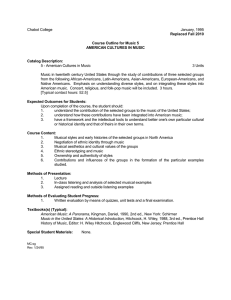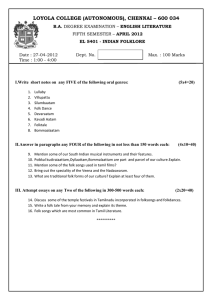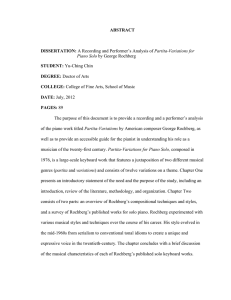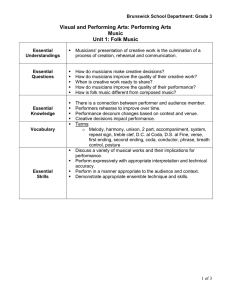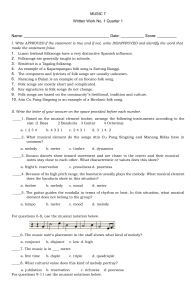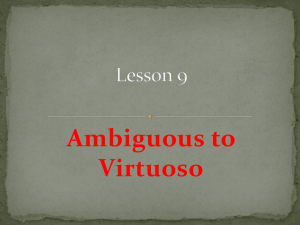Musical Culture of Europe MUSI 3721Y University of Lethbridge, Calgary Campus John Anderson
advertisement
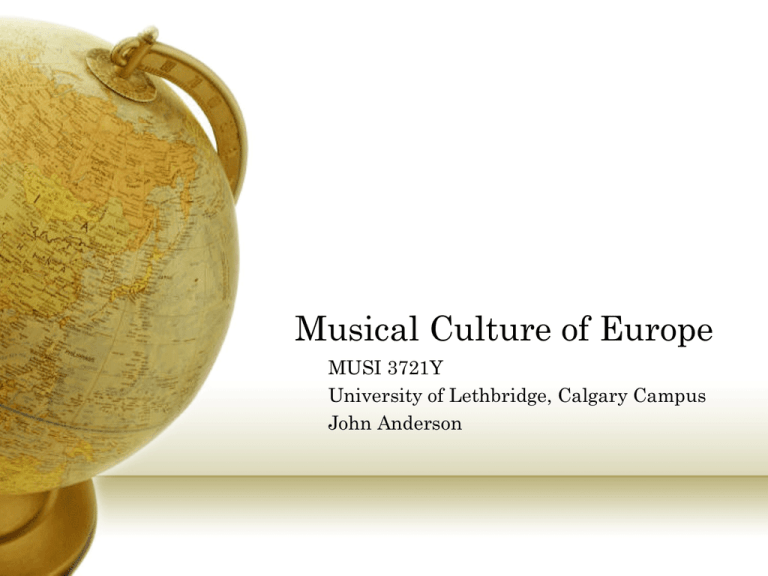
Musical Culture of Europe MUSI 3721Y University of Lethbridge, Calgary Campus John Anderson Music and History • Urbanization was on the increase during this period • “The folk” represented an earlier, more innocent era viewed through the fuzzy light of nostalgia by displaced city dwellers. • In the city, there was an increasing tendency toward specialization of musicians • Hereditary musical castes (Gypsies) and ascribed outsiders (Jewish musicians) were assigned the low status task of providing entertainment music to order National Styles • More the result of politics than of a consistent and unified history, “national music” may combine disparate styles and repertoires from different parts of a country, symbolizing a modern kind of unity Concerts and the Virtuoso • Another legacy of the 19th century was the rise of virtuosity • The virtuoso became a celebrity for whom normal social mores were suspended • In many ways, the “Great Artist” was as much of a marginal person as the professional specialist, for whom normal mores were also relaxed • They were troublemakers, attractive lovers, and had the freedom to move around Individual and Society • The idealized form of folk music is an aesthetic metaphor for community • In art music, the string quartet and chamber ensemble fill a similar role –egalitarian– in contrast to the symphony orchestra with its “urban” hierarchical structure and division of labor Instruments • Compare the piano with the violin • The piano is the product of an industrial age which, during the colonial era in particular, became a symbol of the hegemony of European music • The violin is now considered “indigenous” in many parts of the world, e.g., South India The Eurovision Song Contest as a Metaphor for Modern Europe • The contest receives continent-wide coverage, although it includes some countries (such as Turkey, Egypt, Cyprus, and Israel) that are not European • Many different styles are offered, but the winner is always the blandest, most compromised sound, something felt to be generically “European” Discussion Questions • How can we compare a multicultural urban musical environment such as Vancouver, Toronto, or Montreal to Vienna? • What can we classify as the folk music of our country, and how have nationalist composers incorporated it into their compositions? • What types of music might we find in our society which are communal and egalitarian, as are folk music types of Europe?
